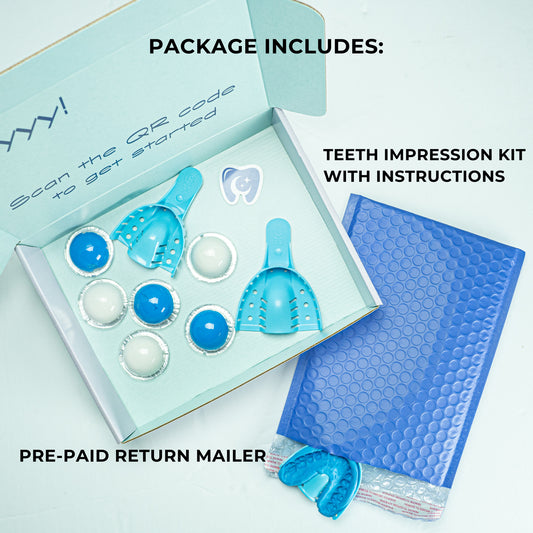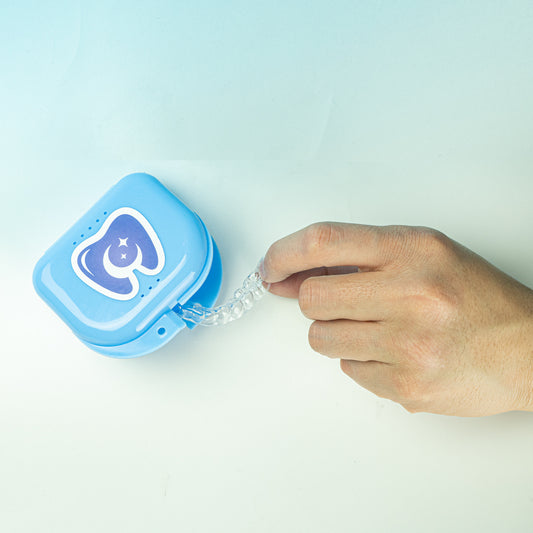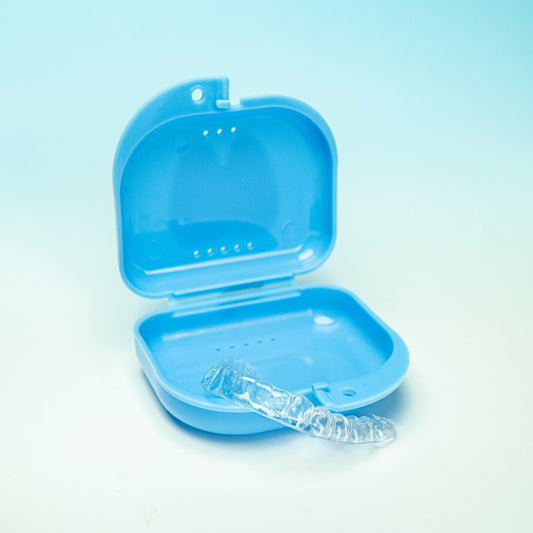Teeth Grinding vs Teeth Clenching
Differences Between Teeth Grinding and Teeth Clenching
Learn about what is teeth grinding and its difference from teeth clenching.
Teeth Grinding versus Teeth Clenching
Sufferers of pain in their jaw or teeth may be victims of bruxism, or teeth grinding, which often occurs unknowingly during sleep or subconsciously throughout the day. If you are feeling stressed, bruxism may be a symptom of build-up anxiety or tension, among other factors. For some, teeth grinding or clenching jaw may be temporary, but for others, it often develops into a habit that could pose serious risks to one’s dental health.
One of the things that makes bruxism so hazardous, is that teeth grinding or clenching can develop unbeknownst to the person. Many do not even realize that they have bruxism until symptoms persist. Continual grinding and clenching of the teeth can lead to severe damage to the teeth and joints of the jaw, and over time when left untreated this can be followed by increased dental complications.
Though the terms ‘grinding’ and ‘clenching’ are often used interchangeably when talking about bruxism, these terms actually carry different meanings. Learn the major differences between teeth grinding and clenching so that you can better understand your condition and learn how to solve it.
What is teeth grinding?
Teeth grinding is the act of the teeth rubbing one’s teeth against each other repeatedly. This grinding can cause tooth pain as one’s tooth enamel is worn down and the grooves and natural arches of the teeth are flattened. Persistent grinding can cause one’s teeth to become chipped or cracked, among other complications.
In the long-term, grinding can potentially cause one's teeth to loosen or even fall out. Without seeking help, teeth grinding can also lead to the need for implants, bridges, crowns or dentures. Being conscious of teeth grinding and its symptoms is an excellent way to start considering how to stop clenching your teeth. This mentality can allow you to take protective measures for your teeth and resolve the issue before it develops into a more serious condition.
Stress is a common risk factor associated with tooth grinding. If you are experiencing a period of heightened stress, your condition may be temporary. But for many, tooth grinding becomes habitual if left untreated. If you notice that you frequently grind your teeth, or if you experience pain that persists, you should visit you dentist and consider investing in a mouth guard as a nightly combatant.
What is teeth clenching?
In contrast to grinding, clenching is the process of intense tightening or biting, an exertion of excess force between the top row and lower row of teeth. The main difference between grinding and clenching is that grinding occurs when the teeth are rubbed together, often horizontally, whereas, clenching involves the tightening of jaw muscles to press the top and bottom teeth firmly together.
Like teeth grinding, a consistent clenching jaw could also lead to similar symptoms, such as tooth loosening or loss. A common symptom of clenching is a tense feeling in the jaw muscles, which can develop into a locked jaw. These symptoms can occur if the problem continues untreated, so it is recommended that as soon as the issue arises to immediately seek refuge in a nightly mouth guard.
The intense pressure of clenching over time can cause headaches, earaches, and sore jaw joints that can eventually develop into a much more serious problem, such as TMJ disorders.
Temporomandibular joint (TMJ) disorders are dysfunctions of the joints and muscles, causing acute to severe discomfort in the jaw and teeth areas. TMJ results in restricted jaw movement, pain, and a popping or clicking noise from the joints during jaw movement. The limited aperture of the mouth when one suffers from TMJ could complicate the process of eating or brushing one’s teeth, therefore further damaging one’s dental and nutritional health.
What are the solutions for teeth clenching and teeth grinding?
If you are experiencing pain in your teeth or jaw, you may be questioning how to stop clenching your teeth? Try to be conscientious of your dental habits throughout the day, and if you have a sleeping partner consider asking them to notify you if they notice any signs that you are grinding or clenching throughout the night.
If you are unsure whether you are suffering from bruxism, as a result of clenching or grinding, your doctor or dentist can perform a physical exam in order determine whether you have the condition. They may use an x-ray to compare the indentations of your teeth with older records, in order to determine if there have been any major changes to the composition of your teeth. If they notice that your teeth have become flatter, it is likely that you are subconsciously clenching or grinding.
The easiest and most effective fix for teeth grinding and clenching is to use a custom night guard for nightly wear. Wearing a mouth guard inhibits the ability to grind teeth while sleeping, on top of severely reducing the pressure exerted between top and bottom teeth.
One of the greatest advantages of investing in a mouth guard is that it can help you sleep more comfortably at night both from a mental and physical standpoint. Physically, a mouth guard will protect your teeth, preventing you from experiencing dental pain throughout the night or in the morning when you wake up. In addition, a dental guard can help you sleep better mentally, save you from worrying whether you will unknowingly clench or grind your teeth throughout the night, as well as eliminating the worry of developing issues such as TMJ down the line.
When you go to purchase a night guard, it is very important that you buy one that is customized to your teeth.
The Easy Teeth Guard makes it simple, if you go through EasyTeethGuard.com and order online, a dental lab kit will be sent via mail to your residence with an easy to follow guide for creating an impression of your teeth. The impression is then sent off to a EasyTeethGuard’s professional lab, where a mold is created. This custom guard will sit securely and comfortably against your teeth, as it should, for a fraction of the cost that you would pay through the dentist.
A custom night guard is the most effective, efficient and dentist-recommended solution for both teeth grinding and clenching.
Order one today to protect your teeth and prevent yourself from experiencing further dental complications down the line.
-
The Soft Night Guard
Vendor:Softest and Most ComfortableRegular price $89.00Regular priceUnit price per -
The Hybrid Night Guard
Vendor:Balance Between Comfort and Durability (Most Popular!)Regular price $109.00Regular priceUnit price per -
The Hard Night Guard
Vendor:Most Durable (for Heavy Grinders)Regular price $99.00Regular priceUnit price per



